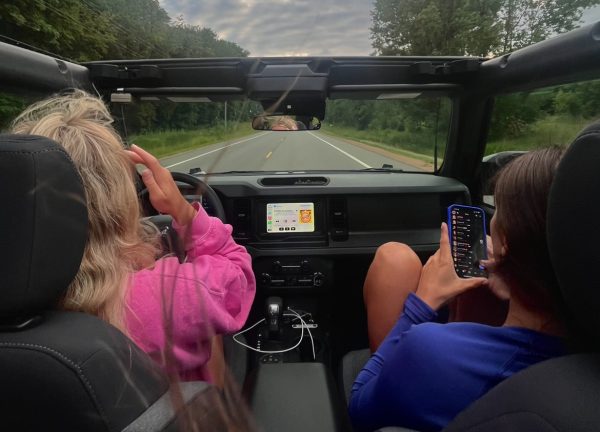Members of the BSM community try new activities as they step outside of their bubble
Many members of the BSM community routinely step outside of their comfort zones in order to find new experiences and gain new perspectives.
Stepping outside comfort zones can be tricky and difficult, but it provides a viewpoint into a contrasting opinion.
Whether it be by joining something new, finding a new leadership role, or by experiencing something well known in a whole different light, many members of the BSM community have elected to leave their comfort zone behind in the pursuit of a wider, more fulfilling horizon.
Ms. Kathy Jacobson, attendance supervisor of BSM, recently found herself onstage singing loudly and proudly in the front row of a community choir that performs for audiences of hundreds of people. “I was a nervous wreck my first year,” Jacobson said.
She found the strength to step out of her comfort zone after seeing her father, and other guests of a nursing home that he was in temporarily, light up each time a choir came and visited them. “My dad was in a nursing home for four months after a car crash. A choir would come in and perform for the people in the nursing home, and I saw the joy that singing brought to the residents of the nursing home,” Jacobson said.
Like many of her classmates, Doreen Liu decided that she was going to push herself in her junior year. However, rather than simply taking more difficult classes, Liu chose to try something new: taking on the role of leader. As a junior, Liu is now president of the Classics Club and on the leadership board of the Medical Club. She stepped far outside of her comfort zone and is now responsible for reviving a club that was starting to dwindle and managing another club that has over 100 members. “I am mostly excited, but it is a little intimidating,” Liu said.
Ms. Sandra Barry, BSM’s learning support specialist and sub coordinator, stepped outside of her comfort zone this past summer in a unique way. Barry, an experienced yoga and meditation instructor, chose to enroll in a 12–day Vipassana meditation course. This 2,500 year old practice is composed of sitting and meditating in silence for 10 full days. “Going in I knew it would be challenging. I knew it was silent––no talking, no phones, no computers. They didn’t even allow books, journals or music. But I thought it would be super peaceful and that I would feel all zen the whole time,” Barry said.
However, Barry was unfortunately mistaken. The retreat became so overwhelming that at one point, she began formulating different ways to escape––one of which involved a fake ruptured appendix. “My brain wouldn’t settle down. I was having all kinds of images popping into my head. It almost felt like my brain was messing with me. It was the opposite of zen. It took 7 days before I felt any kind of calm in my thoughts,” Barry said.
The rewarding part was getting to know myself and how my mind works better; knowing that it was hard and I didn’t quit. I never left, and I am proud that I stayed.
— Ms. Sandra Barry
And yet, although living outside of the comfort zone can be extraordinarily difficult, none of these individuals gave up. They found the strength to keep going, and that made all the difference.
Jacobson continues to sing because of what she’s gained from being there with the elderly. “It has taught me that it can be so rewarding and fun to step out of my box. To see the older people at the nursing homes sing along and come to life makes my day,” Jacobson said.
Liu finds the draws the strength to keep leading from those that she’s guiding. “Knowing that people are benefiting from the club you’re running is a huge confidence boost and it’s very rewarding. I would highly suggest breaking out of [your] comfort zone,” Liu said.
Barry stayed at the retreat because she knew that if she made it through, she’d come out a better, more empowered person. “The rewarding part was getting to know myself and how my mind works better; knowing that it was hard and I didn’t quit. I never left, and I am proud that I stayed,” Barry said.



















































michael hawkins • Nov 20, 2017 at 1:13 pm
Really interesting article, well written, and engaging.
M. Hawkins